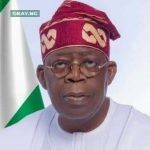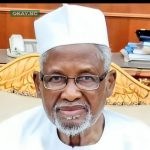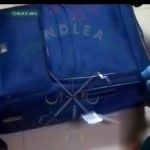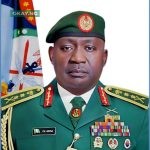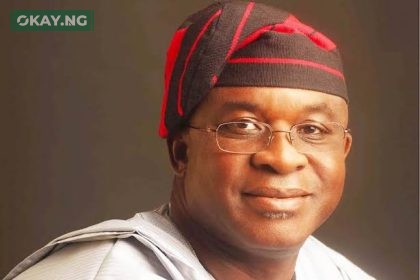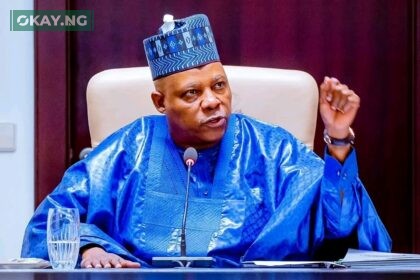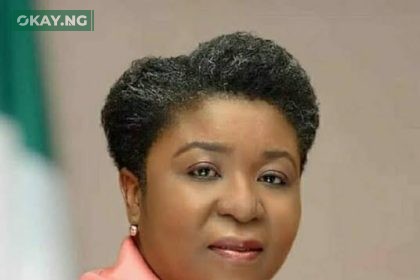In an article published by the former Governor Of the Central Bank Of Nigeria, Dr Sanusi Lamido Sanusi, he has fault the Yorubas. In his post, he explained how the Yorubas are the major problem with Nigeria.
Read full article below….
In sum, the Yoruba political leadership, as mentioned by Balarabe Musa, has shown itself over the years to be incapable of rising above narrow tribal interests and reciprocating goodwill from other sections of the country by treating other groups with respect. Practically every crisis in Nigeria since independence has its roots in this attitude.
- The Yoruba elite and area-boy politics;
- Igbo marginalisation and the responsible limits of retribution; and
- The Yoruba Factor and “Area-boy” Politics.
My views on the Yoruba political leadership have been thoroughly articulated in some of my writings, prime among which was ” Afenifere: Syllabus of Errors” published by This Day (The Sunday Newspaper) on Sept 27, 1998. There was also an earlier publication in the weekly Trust entitled ” The Igbo, the Yoruba and History” (Aug. 21, 1998).
In sum, the Yoruba political leadership, as mentioned by Balarabe Musa, has shown itself over the years to be incapable of rising above narrow tribal interests and reciprocating goodwill from other sections of the country by treating other groups with respect. Practically every crisis in Nigeria since independence has its roots in this attitude.
The Yoruba elite were the first, in 1962, to attempt a violent overthrow of an elected government in this country. In 1966, it was the violence in the West which provided an avenue for the putsch of 15th January. After Chief Awolowo lost to Shagari in 1983 elections, it was the discontent and bad publicity in the South-West which led to the Buhari intervention.
When Buhari jailed UPN governors like Ige and Onabanjo, the South-Western press castigated that good government and provided the right mood for IBB to take over power. As soon as IBB cleared UPN governors of charges against them in a politically motivated retrial, he became the darling of the South-West. When IBB annulled the primaries in which Adamu Ciroma and Shehu Yar Adua emerged as presidential candidates in the NRC and SDP, he was hailed by the South-West. When the same man annulled the June 12, 1993 elections in which Abiola was the front-runner, the South-West now became defenders of democracy.
When it seemed Sani Abacha was sympathetic to Abiola, the South-West supported his take-over. He was in fact invited by a prominent NADECO member to take over in a published letter shortly before the event. Even though Abiola had won the elections in the North, the North was blamed for its annulment. When Abdulsalam Abubakar started his transition, the Yoruba political leadership through NADECO presented a memorandum on a Government of National Unity that showed complete disrespect for the intelligence and liberties of other Nigerians.
Subsequently, they formed a tribal party which failed to meet minimum requirements for registration, but was registered all the same to avoid the violence that was bound to follow non-registration, given the area-boy mentality of South-West politicians. Having rejected an Obasanjo candidacy and challenged the election as a fraud in court, we now find a leading member of the AD in the government, a daughter of an Afenifere leader as Minister of State, and Awolowo´s daughter as Ambassador, all appointed by a man who won the election through fraud.
Meanwhile, nothing has been negotiated for the children of Abiola, the focus of Yoruba political activity. In return for these favours, the AD solidly voted for Evan Enwerem as Senate President. This is a man who participated in the two-million- man March for Abacha´s self-succession. He also is reputed to have hosted a meeting of governors during IBB´s transition, demanding that June 12 elections should never be de-annulled and threatening that the East would go to war if this was done. When Ibrahim Salisu Buhari was accused of swearing to a false affidavit, the Yoruba political elite correctly took up the gauntlet for his resignation.
When an AD governor, Bola Tinubu, swears to a false affidavit that he attended an Ivy League University which he did not attend, we hear excuses.
For so many years, the Yoruba have inundated this country with stories of being marginalised and of a civil service dominated by northerners through quota system. The Federal Character Commission has recently released a report which shows that the South-West accounts for 27.8% of civil servants in the range GL08 to GL14 and a full 29.5% of GL 15 and above. One zone out of six zones controls a full 30% of the civil service leaving the other five zones to share the remaining 70%. We find the same story in the economy, in academia, in parastatals.
Yet in spite of being so dominant, the Yoruba complained and complained of marginalization. Of recent, in recognition of the trauma which hit the South-West after June 12, the rest of the country forced everyone out of the race to ensure that a South-Westerner emerged, often against the best advice of political activists.
Instead of leading a path of reconciliation and strong appreciation, the Yoruba have embarked on short-sighted triumphalism, threatening other “nationalities” that they ( who after all lost the election) will protect Obasanjo ( who was forced on them). No less a person than Bola Ige has made such utterances.
To further show that they were in charge, they led a cult into the Hausa area of Sagamu, murdered a Hausa woman and nothing happened. In the violence that followed, they killed several Hausa residents, with Yoruba leaders like Segun Osoba, reminding Nigerians of the need to respect the culture of their host communities. This would have continued were it not for the people of Kano who showed that they could also create their own Oro who would only be appeased through the shedding of innocent Yoruba blood.
I say all this, to support Balarabe Musa´s statement, that the greatest problem to nation-building in Nigeria are the Yoruba Bourgeoisie. I say this also to underscore my point that until they change this attitude, no conference can solve the problems of Nigeria. We cannot move forward if the leadership of one of the largest ethnic groups continues to operate, not like statesmen, but like common area boys.
iii.The Igbo Factor and the Reasonable Limits of Retribution.
The Igbo people of Nigeria have made a mark in the history of this nation. They led the first successful military coup which eliminated the Military and Political leaders of other regions while letting off Igbo leaders. Nwafor Orizu, then Senate President, in consultation with President Azikiwe, subverted the constitution and handed over power to Aguiyi-Ironsi. Subsequent developments, including attempts at humiliating other peoples, led to the counter-coup and later the civil war. The Igbos themselves must acknowledge that they have a large part of the blame for shattering the unity of this country.
Having said that, this nation must realise that Igbos have more than paid for their foolishness. They have been defeated in war, rendered paupers by monetary policy fiat, their properties declared abandoned and confiscated, kept out of strategic public sector appointments and deprived of public services. The rest of the country forced them to remain in Nigeria and has continued to deny them equity.
The Northern Bourgeoisie and the Yoruba Bourgeoisie have conspired to keep the Igbo out of the scheme of things. In the recent transition when the Igbo solidly supported the PDP in the hope of an Ekwueme presidency, the North and South-West treated this as a Biafra agenda. Every rule set for the primaries, every gentleman´s agreement was set aside to ensure that Obasanjo, not Ekwueme emerged as the candidate. Things went as far as getting the Federal Government to hurriedly gazette a pardon. Now, with this government, the marginalistion of the Igbo is more complete than ever before. The Igbos have taken all these quietly because, they reason, they brought it upon themselves. But the nation is sitting on a time-bomb.
After the First World War, the victors treated Germany with the same contempt Nigeria is treating Igbos. Two decades later, there was a Second World War, far costlier than the first. Germany was again defeated, but this time, they won a more honourable peace. Our present political leaders have no sense of History. There is a new Igbo man, who was not born in 1966 and neither knows nor cares about Nzeogwu and Ojukwu. There are Igbo men on the street who were never Biafrans. They were born Nigerians, are Nigerians, but suffer because of actions of earlier generations. They will soon decide that it is better to fight their own war, and may be find an honourable peace, than to remain in this contemptible state in perpetuity.
The Northern Bourgeoisie and the Yoruba Bourgeoisie have exacted their pound of flesh from the Igbos. For one Sardauna, one Tafawa Balewa, one Akintola and one Okotie-Eboh, hundreds of thousands have died and suffered.
If this issue is not addressed immediately, no conference will solve Nigeria´s problems. By Sanusi Lamido Sanusi.
Being Excerpts from A Paper Presented At The “National Conference On The 1999 Constitution” Jointly Organised By The Network For Justice And The Vision Trust Foundation, At The Arewa House, Kaduna From 11th –12th September, 1999.




